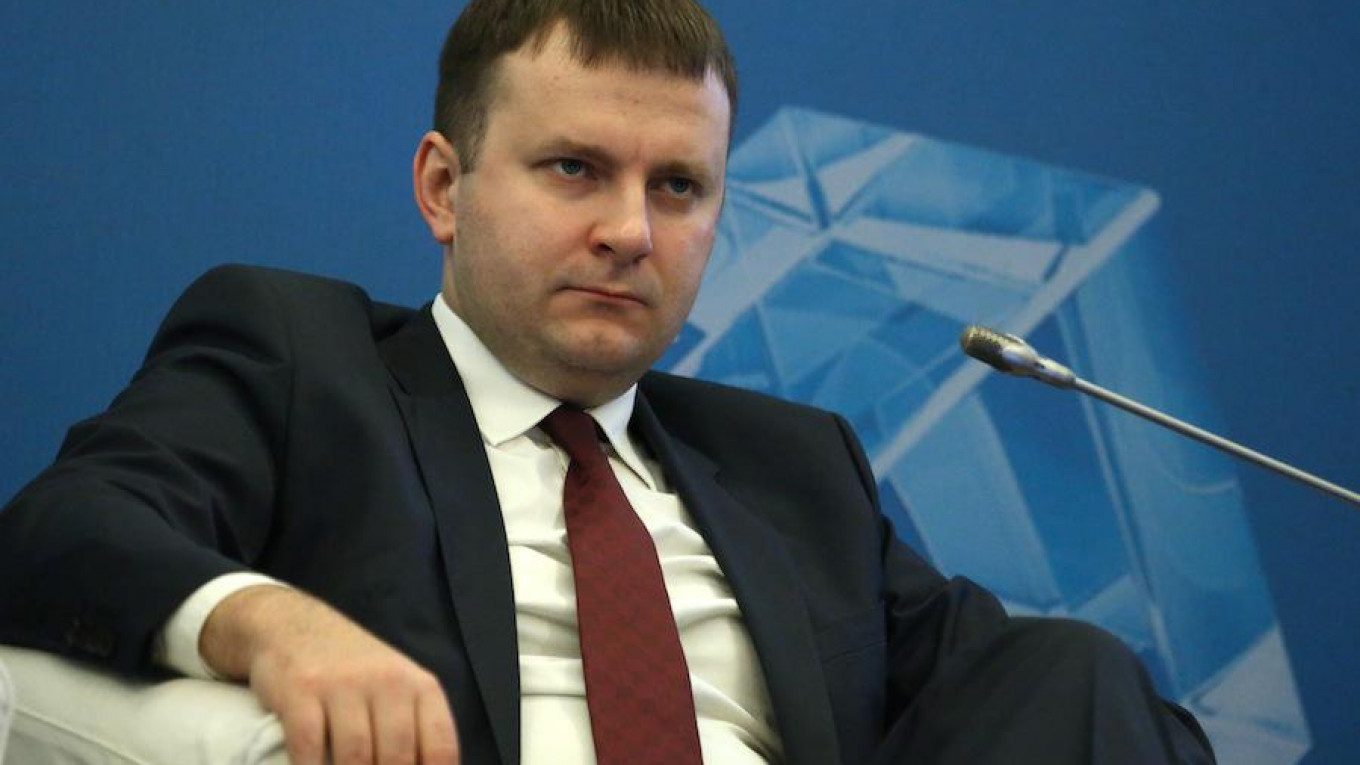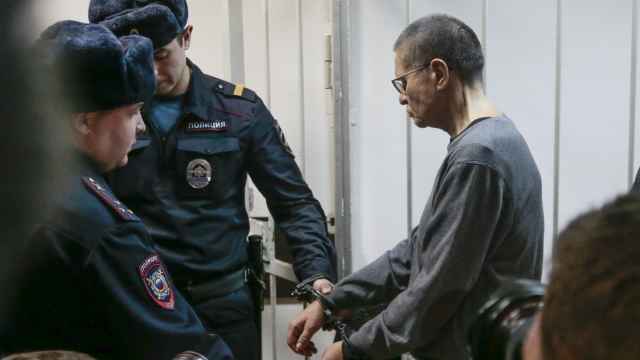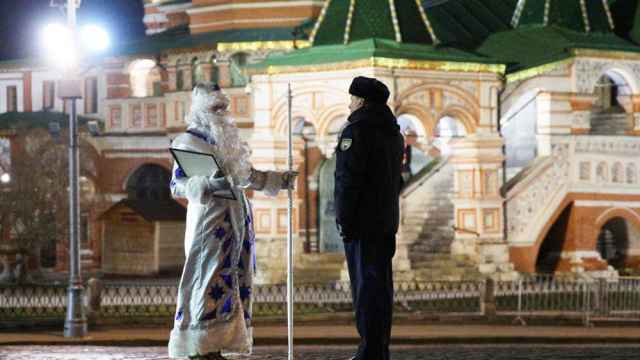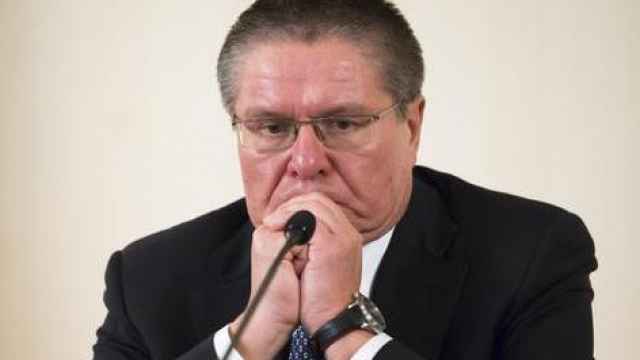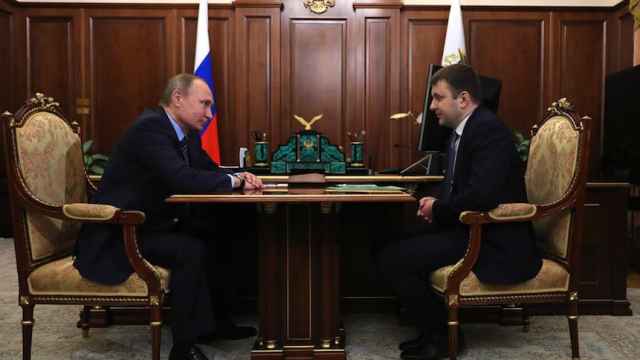On Nov. 15, Russia’s Economic Development Minister, Alexei Ulyukayev, was arrested and then sacked on bribery charges in an unprecedented special operation at the offices of state oil giant Rosneft. Two weeks later, the Ulyukayev affair remains a mystery to insiders and experts. For many observers, the announcement of Ulyukayev’s successor promised to reveal – at least partially – the backstage machinations that led to the minister’s arrest.
The loyalty of fear: Read our in-depth coverage of Ulyukayev's arrest.
But it hardly helped. On Nov. 30, President Vladimir Putin finally appointed a new Economic Development Minister, 34-years-old Deputy Finance Minister Maxim Oreshkin.
“Maxim, you are a fairly young man, but I cannot call you a young specialist,” Putin told Oreshkin. “You are a capable individual and a mature specialist. I wish you every success.”
In Russia’s financial sector, Oreshkin is highly praised as smart and professional official with a deep background in economics. His career has spanned both the public and private sectors, including stints at the Russian Central Bank, French bank Credit Agricole and also VTB Capital. The Kremlin’s idea was to fill this position not with a manager, but with an expert in macroeconomics, a source within the Economic Development Ministry told the Vedomosti business newspaper.
Many have already responded positively to Oreshkin’s appointment.
“I don’t know a macroeconomist on the market who is better than him,” Finance Minister Anton Siluanov told journalists.
Sergei Romanchuk, head of money markets at Metallinvestbank, has crossed paths with Oreshkin throughout the young macroeconomist’s career. He is pleased to see him appointed Economic Development Minister.
“Oreshkin’s appointment is a pleasant surprise,” Romanchuk says. “Clearly it was done not out of loyalty to the current team, but because of his competence and professionalism.”
The Economic Development Ministry specializes in macroeconomic planning. It analyzes financial markets, produces economic forecasts, and promotes economic growth. While the Finance Ministry focuses on filling the state treasury and controlling expenses, the Economic Development Ministry develops strategies to push the national economy forward. As a result, the two ministries often find themselves in competition, with the Finance Ministry fighting for higher taxes and lower inflation and the Economic Development Ministry pushing for lower taxes and higher liquidity on the market.
But with a former Finance official now serving as Economic Development Minister, this tension will most likely disappear, many observers believe. “Now it’s all under the Finance Ministry,” a source close to the government said.
But Romanchuk frames it more positively.
“I think this increases communication between them,” he says. “It will allow problems to be resolved more quickly.”
Politically, the appointment of Oreshkin has little to do with inner struggles within the government, experts believe. Thirty-four years old, Oreshkin represents the new wave of young Russian professionals making their careers at the highest levels of the Russian bureaucracy. “His appointment continues the trend of advancing new young technocrats,” says Evgeny Minchenko, a political analyst.
“He belongs to the same new league of ‘efficient bureaucrats’ as Anton Vaino and even Sergei Kirienko,” says Gleb Pavlovsky, a political commentator. Vaino is the new head of the presidential administration, while Kiriyenko is Vaino’s first deputy and Putin’s manager for all internal politics. Both were appointed recently. The logic of the staff reshuffle among top Russian officials is to replace Putin’s old guard with young and loyal bureaucrats.
Read more: Why Vladimir Putin fired his chief of staff and long-time ally.
As for Ulyukayev’s unprecedented case, Pavlovsky stresses that it has hardly any connection to the new appointment as Oreshkin is not a political figure.
“Ulyukaev’s arrest and sacking were about a theatrical action flick, performed by the Kremlin, possibly with Putin’s direct involvement,” he says. “Oreshkin’s appointment is about work. These are two different spheres.”
It also means that “in Ulyukayev’s arrest there was a plot, but no plan,” Pavlovsky says.
Nikolay Petrov, a political analyst, agrees. “The very fact that it took two weeks to find a replacement suggests that events [tied to Uylukayev’s arrest] unfolded spontaneously and were not organized in advance,” he says.
A Message from The Moscow Times:
Dear readers,
We are facing unprecedented challenges. Russia's Prosecutor General's Office has designated The Moscow Times as an "undesirable" organization, criminalizing our work and putting our staff at risk of prosecution. This follows our earlier unjust labeling as a "foreign agent."
These actions are direct attempts to silence independent journalism in Russia. The authorities claim our work "discredits the decisions of the Russian leadership." We see things differently: we strive to provide accurate, unbiased reporting on Russia.
We, the journalists of The Moscow Times, refuse to be silenced. But to continue our work, we need your help.
Your support, no matter how small, makes a world of difference. If you can, please support us monthly starting from just $2. It's quick to set up, and every contribution makes a significant impact.
By supporting The Moscow Times, you're defending open, independent journalism in the face of repression. Thank you for standing with us.
Remind me later.


